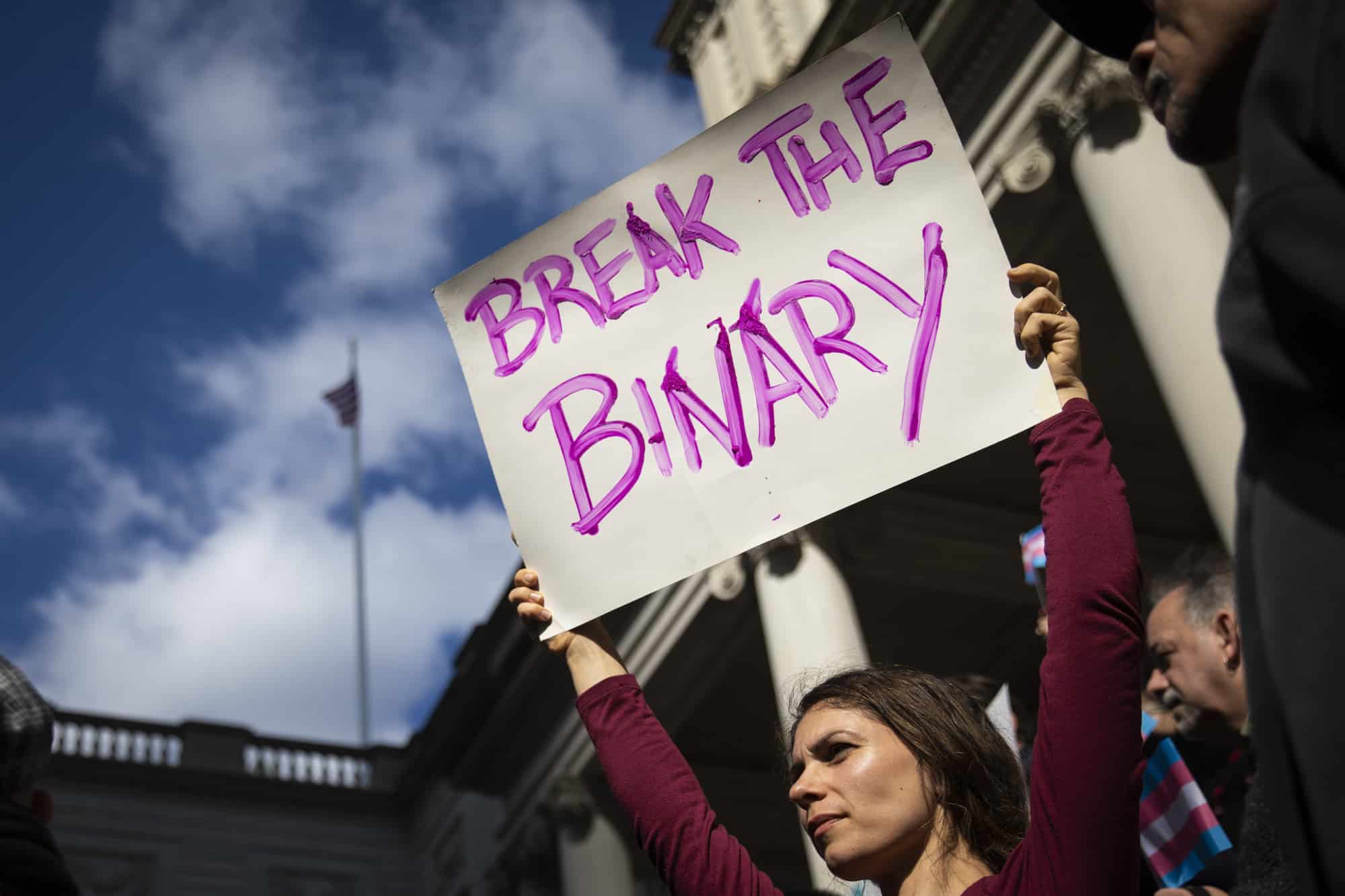It’s safe to say that as recently as five years ago most people had never heard the term “misgendering”, and could be excused for thinking it described an arcane error in Latin grammar. But, as of this week, failing to respect a queer person’s non-binary pronouns is the newest form of workplace discrimination recognised under the landmark 1964 Civil Rights Act in the United States.
The new pronoun mandate for workers, employers, and even customers was issued by the Equal Employment Opportunity Commission as part of the civil rights agency’s first move in a quarter-century to bring its workplace guidelines up to date with legal precedent and evolving social norms.
The 189-page document, which is technically legally non-binding but spells out the agency’s policies on investigating discrimination complaints, says that misgendering must be repeated and intentional, not a slip of the tongue, to rise to the level of workplace harassment. In its guidelines, the EEOC also decreed that it’s discriminatory for an employer to deny a transgender person access to a bathroom they feel best matches their gender identity, even if that invades the privacy of the other workers, or, in some cases, conflicts with another employee’s religious convictions.
The new standards were adopted on a 3-2 vote, along party lines, after the investigatory panel received some 37,000 public comments on the updates proposed last October.
With this dramatic decision, it’s no exaggeration to say that queer theory — the provocative academic idea that rejects the normativity of heterosexuality — is now firmly ensconced into US law and American society, at least in the bluest and most urban areas with the most educated residents and top-paying jobs.
The EEOC’s decision is the consequence of decades of queer scholarship and legal manoeuvring to gain civil rights protection and social acceptance for behaviours once deemed as deviant but increasingly seen as liberated from archaic, repressive conventions. The agency said banning misgendering and bathroom restrictions for trans people “logically extends” from the US Supreme Court’s 2020 Bostock ruling that added sexual and gender identity as a protected category under Title VII of the Civil Rights Act.
This taboo against misgendering can be seen as a natural outgrowth of the speech codes that now govern Anglophone campuses across the globe. Similar speech protections against offending groups which claim a history of oppression have become integrated into corporate DEI policies, so that what appears revolutionary when coming from federal authorities could be more accurately described as a codification of increasingly common policies and practices.
The New York City Commission on Human Rights issued a stricter ban on misgendering in 2019, saying that gender harassment can be a “single or isolated incident”, and specifying that protections extend to people who use esoteric pronouns, such as they/them/theirs or ze/hir.
With respect to bathroom usage, the New York City Commission said that if someone is uncomfortable sharing a bathroom or changing room with a trans person, too bad: the trans person’s interests must be prioritised, and the uncomfortable person can use a single-occupancy restroom.
It remains to be seen whether the beneficiaries of the misgendering project will respect binary pronouns that activists believe reflect a fake worldview constructed for the purpose of domination and oppression. Some activists have proposed replacing conventional pronouns with a generic “they” for all members of society, as a step toward dismantling an oppressive system of arbitrary gender norms.
Such a move would be met with objections from cis-hetero-normative binary holdovers, quaintly attached to the male-female dichotomy, who would consider being they/them’ed as a form of reverse misgendering. And, if past is prologue, those objections will be met with ridicule and derision.










Join the discussion
Join like minded readers that support our journalism by becoming a paid subscriber
To join the discussion in the comments, become a paid subscriber.
Join like minded readers that support our journalism, read unlimited articles and enjoy other subscriber-only benefits.
Subscribe